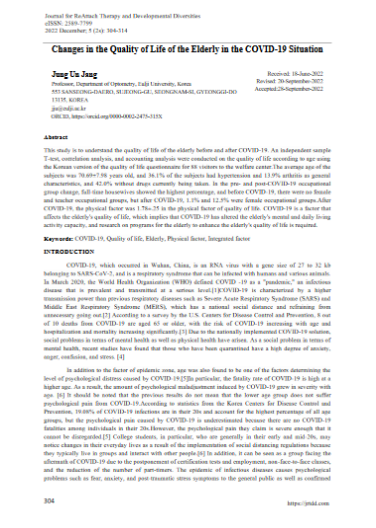Changes in the Quality of Life of the Elderly in the COVID-19 Situation
Main Article Content
Abstract
This study is to understand the quality of life of the elderly before and after COVID-19. An independent sample T-test, correlation analysis, and accounting analysis were conducted on the quality of life according to age using the Korean version of the quality of life questionnaire for 88 visitors to the welfare center.The average age of the subjects was 70.69±7.98 years old, and 36.1% of the subjects had hypertension and 13.9% arthritis as general characteristics, and 42.0% without drugs currently being taken. In the pre- and post-COVID-19 occupational group change, full-time housewives showed the highest percentage, and before COVID-19, there were no female and teacher occupational groups, but after COVID-19, 1.1% and 12.5% were female occupational groups.After COVID-19, the physical factor was 1.78±.25 in the physical factor of quality of life. COVID-19 is a factor that affects the elderly's quality of life, which implies that COVID-19 has altered the elderly's mental and daily living activity capacity, and research on programs for the elderly to enhance the elderly's quality of life is required.

